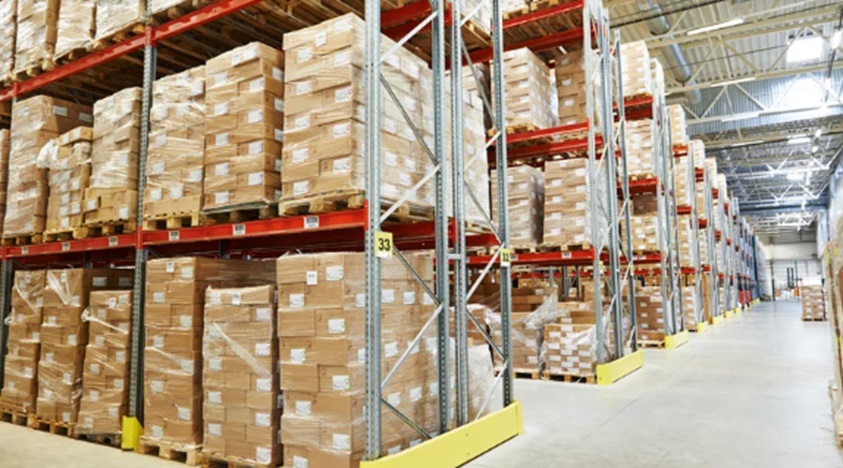Managing inventory effectively is a crucial aspect of running a successful business. It involves keeping track of stock levels, ensuring timely restocking, and reducing waste. One key factor that plays a central role in this process is warehouse logistics. This system not only streamlines the storage and movement of goods but also ensures that inventory is managed with efficiency and precision.
Efficient Inventory Tracking
One of the primary roles of warehouse logistics is to facilitate accurate tracking of inventory. Without a streamlined system in place, businesses can easily lose track of products, leading to overstocking or stockouts. A well-structured logistics system ensures that every item entering and exiting the warehouse is accounted for.
Modern tracking tools like barcode scanning and RFID tagging further enhance accuracy by providing real-time updates on stock levels. These tools allow businesses to anticipate demand and ensure they have the right amount of inventory on hand. One of the fundamentals of warehouse logistics that every business should know includes understanding these systems to make decisions quickly and avoid unnecessary delays in operations.
Optimized Space Utilization
A critical aspect of inventory management is utilizing warehouse space effectively. Poorly planned storage arrangements can result in wasted space and difficulty accessing products, which, in turn, delays order fulfillment. Warehouse logistics involves planning the layout of storage facilities to maximize efficiency.
For instance, organizing goods based on their demand frequency can save time and effort for employees retrieving items. High-demand goods should be placed within easy reach while slower-moving stock can be stored in less accessible areas. This kind of layout planning not only boosts efficiency but also reduces the risk of operational errors.
Improved Supply Chain Coordination
Warehouse logistics is an integral part of the larger supply chain and its role in ensuring coordination cannot be overstated. By managing inventory levels effectively, businesses can better align their supply chain operations. This coordination helps maintain a balance between supply and demand.
For example, if a company uses a reliable logistics system, its warehouses can quickly communicate when stock levels are low and need replenishing. This ensures that suppliers are informed in a timely manner and helps prevent disruptions; for businesses exploring how they can streamline processes end-to-end, solutions offered by logistics experts can provide customized, efficient support.
Enhanced Order Fulfillment
Timely and accurate order fulfillment is a hallmark of great customer service, and warehouse logistics directly impacts this area. When inventory is managed correctly, businesses can process and ship orders much more effectively.
Investing in automated systems can significantly reduce the time required to pick, pack, and ship products. Additionally, maintaining proper stock levels means customers are less likely to encounter delays caused by stockouts. Over time, consistent and reliable service builds customer trust and loyalty, giving a competitive edge to the business.
Cost-Efficiency and Waste Reduction
Another important benefit of a strong warehouse logistics system is cost reduction. Every aspect, from efficient use of space to precise tracking of stocks, contributes to minimizing operational expenses. For instance, by reducing overstocking, companies can cut down on unnecessary storage costs and the risk of product waste.
Additionally, logistics plays a role in reducing redundancies in operations. When warehouses operate smoothly, employees can focus their efforts on tasks that add value rather than correcting avoidable mistakes. For industries dealing with high volumes, streamlining these activities can add up to significant cost savings over time.
Data-Driven Decision Making
A well-designed warehouse logistics system provides businesses with valuable data and insights. Metrics such as inventory turnover rate, storage costs, and order fulfillment times help businesses evaluate their performance and identify areas of improvement.
With access to such insights, businesses can make strategic decisions about purchasing and stocking. Using predictive analytics also allows companies to anticipate future demand trends, enabling proactive inventory management.
Conclusion
Warehouse logistics plays a vital role in ensuring efficient inventory management. From tracking inventory to optimizing space, it impacts nearly every aspect of how businesses store and handle goods. Additionally, it enhances supply chain coordination, ensures timely fulfillment of orders, and drives cost efficiency. By integrating advanced systems and tools, companies can not only improve their operations but also offer superior service to their customers. Adopting these strategies is more than just a choice; it’s a necessity in staying competitive in today’s fast-evolving business environment.






